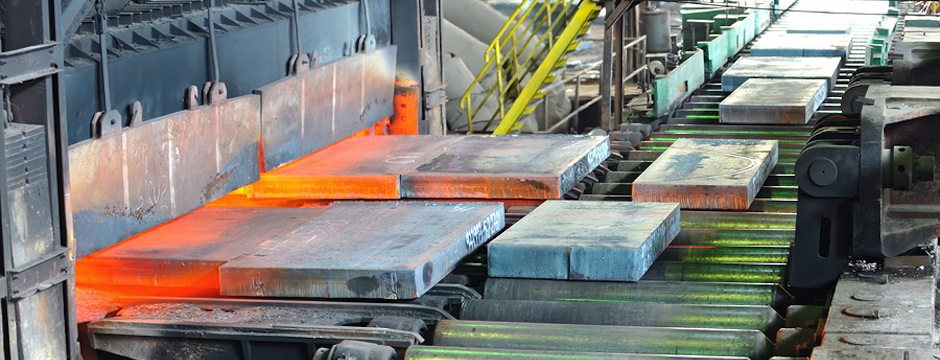Welcome to Accurate Calibration & Repair Service Inc.!
Since 1999, Accurate Calibration & Repair Service Inc. has delivered high quality calibration and repair services to the automotive, military and aerospace industry. Our company has been successful because of our extensive knowledge of equipment, standards of assurance, extreme attention to detail and untouchable customer service. Accurate Calibration & Repair Service Inc. technicians have over 40 years of combined experience within the industry and use the highest quality of equipment and technology to ensure a safe and accurate calibration each and every time.
Contact Accurate Calibration & Repair Service Inc. for 2750, Aerospace Calibration, Calibration, Furnace Repair, Industrial Furnace, Industrial Furnace Repair, Industrial Oven Repair, Instrument Calibration, Temperature Calibration, and Temperature Uniformity Survey. Proudly supporting the areas of Bridgeview, Carol Stream, Chicago, Cicero, Elk Grove Village, Franklin Park, Gary, Indianapolis, Milwaukee, Rockford, and surrounding areas.
CONTACT US TODAY TO GET A QUOTE
Contact Accurate Calibration & Repair Service Inc. for 2750 in Cicero, Aerospace Calibration in Cicero, Calibration in Cicero, Furnace Repair in Cicero, Industrial Furnace in Cicero, Industrial Furnace Repair in Cicero, Industrial Oven Repair in Cicero, Instrument Calibration in Cicero, Temperature Calibration in Cicero, Temperature Uniformity Survey in Cicero, and in surrounding areas.
Below is some general information about Cicero:
Cicero is an incorporated town in Cook County, Illinois, United States. The population was 83,891 at the 2010 census. Cicero is named for the town of Cicero, New York, which in turn was named for Marcus Tullius Cicero, the Roman statesman and orator. Originally, Cicero Township occupied six times its current territory. Weak political leadership and town services resulted in cities such as Oak Park and Berwyn voting to split off from Cicero, and other portions such as Austin were annexed into the city of Chicago. Al Capone built his criminal empire in Chicago before moving to Cicero to escape the reach of Chicago police. On July 11Ð12, 1951, a race riot erupted in Cicero when a mob of around 4,000 attacked and burned an apartment building at 6139 W. 19th Street that housed the African-American family of Harvey Clark Jr., a Chicago Transit Authority bus driver who had relocated to the then-all-white city. Gov. Adlai E. Stevenson was forced to call out the Illinois National Guard. The Clarks moved away and the building had to be boarded up. The Cicero riot received worldwide condemnation.
The 1980s and 1990s saw a heavy influx of Hispanic residents to Cicero. Once considered mainly a Czech or Bohemian town on 22nd Street, most of the European-style restaurants and shops have been replaced by Spanish-titled businesses. In addition, Cicero has a small black community. Cicero has seen a revival in its commercial sector, with many new mini-malls and large retail stores. New condominiums are also being built in the city. Cicero has long had a reputation of government scandal. Most recently, Town President Betty Loren-Maltese was sent to federal prison for misappropriating $12 million in funds. She was well liked by retired, long-term Cicero residents, but was continually challenged by younger Hispanic opponents before her indictment, and had strong ties to members of the Chicago Outfit, which included her deceased husband.
Cicero was taken up and abandoned several times as site for a civil rights march in the mid-1960s. The American Friends Service Committee, the Rev. Martin Luther King, and many affiliated organizations, including churches, were conducting marches against housing and school de facto segregation and inequality in Chicago and several suburbs, but the leaders feared too violent a response in Chicago Lawn and Cicero. Eventually, a substantial march was conducted in Chicago Lawn, but only a splinter group, led by the Rev. Jesse Jackson, marched in Cicero. The marches in the Chicago suburbs helped galvanize support for the passage of the Fair Housing Act in 1968, extending federal prohibitions against discrimination to private housing. The act also created the U.S. Department of Housing and Urban Development’s Office of Fair Housing and Equal Opportunity, which enforces the law.
On the south side of Cicero, there were two racetracks. Hawthorne Race Course, located in Cicero and Stickney, is a horse racing track still in operation. Just north of it was Chicago Motor Speedway at Sportsman’s Park, which was formerly Sportsman’s Park Racetrack for many years. This Sportsman’s Park facility is now closed, acquired by the Town of Cicero, and has since been demolished. Facilities of the Wirtz Beverage Group have been built on this site. Cicero is served by the Cicero Fire Department, with a staff of 95 professional firefighters. The CFD currently operates out of Three Fire Stations; Fire Station # 1 on Central Ave., Fire Station # 2 on 25th St. and Fire Station # 3 on 34th St., There apparatus is currently as follows: Four Engines, 2 Ladder Trucks, One Tower Ladder and Six Ambulances.
Cicero is served by two major railroad lines, the BNSF Railway and the Belt Line Railroad. Public Transportation is provided by Metra BNSF Railway Line between Aurora and Chicago’s Union Station with a stop near Cicero Avenue and 26th Street. Currently, this station is undergoing a much needed reconstruction and expansion by Metra. Also, the CTA Douglas-Pink Line provides daily service from 54th Avenue Terminal to the Chicago Loop. Its Cicero-49th Avenue station is also located in Cicero. Pace routes 302-Ogden/Stanley, 305-Cicero/River Forest, 315-Austin/Ridgeland, and 322-Cermak, and CTA routes 12-Roosevelt, 18-16th/18th Streets, 21-Cermak, 35-31st/35th Streets, 54-Cicero, 54B-South Cicero, and 60-Blue Island/26th make up Cicero’s bus network.
Source: Cicero on Wikipedia





